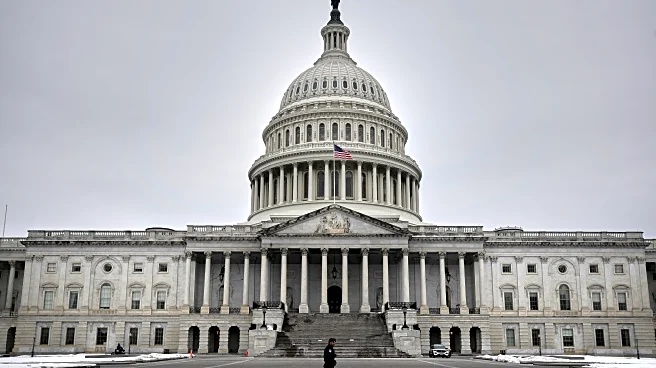Rapid Read • 8 min read
Swiss inflation increased to 0.2 percent year-on-year in July, following a previous dip into negative territory in May, according to the Swiss Federal Statistical Office (SFSO). The rise was driven by a 0.7 percent year-on-year increase in the price of Swiss-made products, although this was partially offset by a 1.4 percent drop in import prices, largely due to an 8.9 percent fall in petroleum product prices. The consumer price index remained stable month-on-month at 107.8 points, reflecting balanced opposing trends. Prices for travel packages, air transport, and clothing decreased due to summer sales, while hotel sector prices increased. Economists had forecasted inflation to be around 0 percent to 0.1 percent year-on-year, and between -0.2 percent and -0.3 percent month-on-month.
AD
The slight rise in Swiss inflation is significant as it indicates a stabilization after concerns of deflation earlier in the year. The Swiss central bank's decision to cut its key interest rate to zero in June was aimed at preventing further price declines, reflecting the economic uncertainty influenced by US tariffs. The recent inflation data suggests that the Swiss economy is managing to control inflation effectively, which is crucial for maintaining economic stability. The increase in domestic product prices and the decrease in import prices highlight the complex dynamics of Switzerland's economic environment, which could impact trade and consumer behavior.
Switzerland faces potential economic challenges due to the White House's decision to apply a 39 percent surcharge on Swiss products imported into the US, up from the previously announced 31 percent. This development could affect Swiss exports and necessitate negotiations for concessions. The Swiss government is expected to engage in diplomatic discussions to mitigate the impact of these tariffs. Additionally, the central bank may continue to monitor inflation trends closely to decide on future monetary policy actions.
The inflation trends in Switzerland could have broader implications for international trade relations, particularly with the US. The increased tariffs on Swiss imports may lead to shifts in trade strategies and economic diplomacy. Furthermore, the Swiss central bank's interest rate decisions could influence global financial markets, especially in regions with interconnected economies. The situation underscores the delicate balance between domestic economic policies and international trade pressures.
AD
More Stories You Might Enjoy












